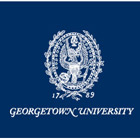Our Ph.D. program has much to offer. In addition to the attention of a distinguished and award-winning History faculty, our students benefit from Georgetown's many regional studies programs and intellectual centers, where interdisciplinary activity is prized. Opportunities for language training abound. No city has greater resources for historians than Washington, D.C.: the Library of Congress, the National Archives, the National Library of Medicine, the Folger Shakespeare Library, and many other institutions hold an unparalleled wealth of research material.
The field of Middle East history is particularly strong at Georgetown. Our program is most known for its emphasis on the social, cultural, and political history of the early modern and modern Arab World and of the Ottoman Empire and Turkey. Our doctoral students, in keeping with the research interests of the Middle East faculty and the wider department, are working on topics related to the history of the environment, gender, commodities, social movements, colonialism and post-colonialism, and the military in the Middle East.
Georgetown has unusually rich resources on the Arab World. In the Department of History, Professors Abi-Mershed, Haddad, Tucker, and Voll focus their research on the Arab World, with current projects on subjects as diverse as colonialism, state-building and violence, gender and Mediterranean piracy, Islamic revolutionary movements, and Islamic law and gender. We have research experience in the Maghrib, Egypt, Sudan, Syria, Palestine, Jordan, and the Arab Gulf. There are numerous supporting faculty in other departments who work in the Arab World as well. The Department of Arabic and Islamic Studies has rich faculty resources in Arabic literature, both classical and modern, as well as Islamic Studies. Faculty at the Center for Contemporary Arab Studies (CCAS) specializes in the anthropology and politics of the Arab World, and many of our Ph.D. students take advantage of their courses and their guidance.






